
by World Moms Blog | Jun 21, 2014 | 2014, Belgium, India, New Zealand, Purnima, South Africa, Tara B., The Alchemist, ThinkSayBe, UK, USA, World Interviews
This week, the World Moms were found discussing the FIFA World Cup 2014 football. Here is what they answered to the question –
Is your country playing the World Cup? If not, what team are you rooting for and why?

The kids in the favela in Recife talking about football
Jennifer Burden of New Jersey, USA says: When it comes to the Olympics, I am Team USA all the way!!! But the World Cup is a little different for me. I root for USA and England because my husband grew up watching England play and our family in the UK is involved with the FA there. It’s both a country and a family thing for me and my kids!
Sophia of Florida, USA says: This is very nationalist of me or … continental of me, but I go for any African country. I think this year the World Cup should have told Brazil police they need to stop killing children from the favela & as they have continued, the World Cup either needs to bring it up in mass conversation whilst there, or not hold the event there at all.
Check these news articles here and here.
Simona of South Africa says: Even though I live in South Africa, my husband and I are Italian and Italy is the only team I REALLY support! If Italy isn’t playing I root for Spain (my mom-in-law was half Spanish) then South Africa (although their soccer playing is worse than the Italians playing rugby)!!
Hannah Ashton from United Kingdom says: I’m a dual UK/US citizen. I’m not massively into football but I like the World Cup games. I root for England first and USA second. If either of those teams win I would be very happy but very surprised!
Maman Aya of New York, USA says: We are USA fans all the way in this house, unless they don’t make it, then we root for the underdogs.
Karyn Van Der Zwet of New Zealand says: Not sure if we are or not. (You can probably tell how much I’m into it. )
TaraB of Washington, USA says: of I cheer for USA but will watch any match. My father is a huge soccer fan, and we always watched the World Cup. We made signs, decorated, and created special food even though it was just us in the basement. And when the USA hosted the Cup back in the 80’s or 90’s, my dad took each of us kids to a game. I saw Norway play Ireland in a 0-0 draw. It was still one of the most amazing experiences. The people from all over the world … the costumes … such fun!
K10K of Belgium says: Belgium is in, so we (mostly the kids) will be following and cheering! It’s like the entire country has gone mad!
Purnima of India says: I already wrote about it elaborately here. India is completely a cricket-crazy nation. In our household, (mostly my son) is supporting Brazil for reason known to himself. I am of course partial to Brazil myself, but I am happy to see the most talented team win.
Did you all catch our World Moms’ posts the past week about the World Cup? EcoZiva from Brazil wrote about it here and Purnima from India wrote about it here. Two different countries talking about it in two different ways.
What about you… Which country do you support for in this year’s World Cup?
This post has been compiled and edited by World Mom, Purnima of India. Photo credit to her.
– World Moms Blog
World Moms Blog is an award winning website which writes from over 30 countries on the topics of motherhood, culture, human rights and social good. Over 70 international contributors share their stories from around the globe, bonded by the common thread of motherhood and wanting a better world for their children.
World Moms Blog was listed by Forbes Woman as one of the "Best 100 Websites for Women 2012 & 2013" and also called a "must read" by the NY Times Motherlode in 2013. Our Senior Editor in India, Purnima Ramakrishnan, was awarded the BlogHer International Activist Award in 2013.
More Posts

by Nicole Melancon (USA) | Jun 17, 2014 | 2014, Ethiopia, Humanitarian, Maternal Health, Newborn Health, Save The Children, World Voice
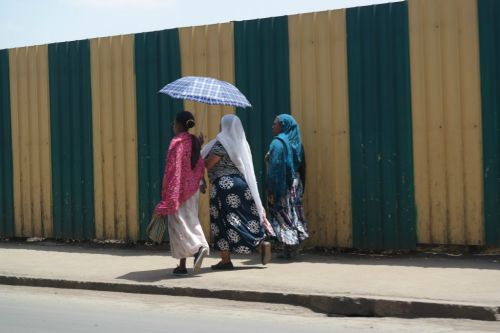
Ethiopia, one of the poorest countries in Africa with a population of 90 million people, stunned the world by achieving the Millennium Development Goal #4 of reducing the mortality rates of children under age 5 by two-thirds well ahead of the 2015 deadline. In a country in which 95% of the population lives outside of an urban center in rural, remote and hard to reach areas and a shocking 80% of women birth at home without a midwife. Health Extension Workers (HEW) have been the key ingredient to Ethiopia’s success. However, sadly the rate of newborn survival in Ethiopia has not shown nearly as much progress.
As an international reporting fellow with The International Reporting Project, fellow World Moms Blog editor, Elizabeth Atalay, and I are in Ethiopia for the next two weeks reporting on newborn health. We will be meeting with a diverse variety of people around the country such as doctors, health officials, mothers, NGOs, midwives and health extension workers to learn about Ethiopia’s maternal, newborn and child health systems, policies and strategies for improving newborn health. Today we had a presentation on maternal, newborn and child health in Ethiopia given by Dr. Abeba Bekele, the Program Manager at Save the Children Ethiopia’s Saving Newborn Lives Program.
Dr. Abeba Bekele is a medical doctor by training yet after spending five years working in the field she saw firsthand some of the tragic problems with maternal care in her country.
Watching as a patient bled to death after delivery, and being unable to save this mother of six, was a turning point for Dr. Abeba. She decided to move to working in public health policy in hope of improving Ethiopia’s poor maternal and child health care system.
Over the years, Dr. Abeba has seen remarkable progress in some areas, but painfully slow progress in other areas in regards to maternal, newborn and child health.
- Over the past 20 years, Ethiopia has reduced child deaths (for children under age 5) by more than two-thirds. In 1990, an estimated 204 children in every 1,000 in Ethiopia died before the age of five. Now that number is closer to 69 in every 1,000.
- While 1- 59 months (i.e. 5 year) child mortality rate is declining 6.1% annually the neonatal rate (first 28 days of life) is only declining 2.4% annually.
- Since the year 2000, Ethiopia has reduced its lifetime risk of maternal death from 1 in 24 to 1 in 67.
Although these figures are encouraging, there is also much work to be done in improving maternal, newborn and child health in Ethiopia. One of the main issues that is making maternal and newborn mortality rates difficult to tackle is the fact that over 80% of women in Ethiopia deliver at home with no trained help. These women give birth assisted by the community birth attendant, with a friend, a neighbor or even by themselves. The best way to save both maternal and newborn lives is to have women give birth assisted by a trained midwife at a health center. In fact the Ethiopian government is strongly encouraging all women to give birth at a health center but there are many obstacles in the way.
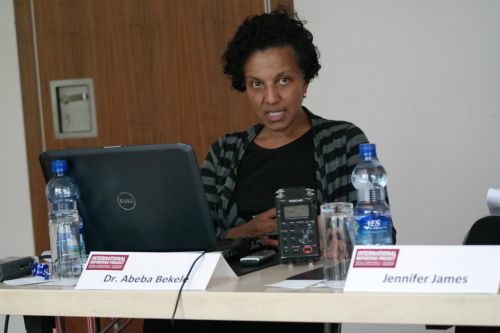
In an effort to improve maternal, newborn and child health, the Ethiopian government has implemented a massive effort of new policies and programs throughout the nation. The biggest success story has been the training and deploying of an army of 34,000 Health Extension Workers (HEW). Implemented in 2005, this massive effort has had remarkable success in saving lives through education, prevention of diseases, and provision of family health services. HEW’s live within the community and are trained and paid by the government to do home visits for an assigned population within their community. HEWs have been successful in cutting child under five deaths significantly as they can check and treat for the biggest child killers like diarrhea, pneumonia and malaria. However, HEWs are not trained as midwives, and can only advise a woman to give birth in a health center. This is an area that must be changed as giving birth by a trained professional in a health center would significantly reduce neonatal and maternal deaths.
Progress also needs to be made in the sheer accessibility and number of health centers. Today there are only 3,500 health centers in Ethiopia for 90 million people. More health centers and hospitals need to be built and more roads to reach the inaccessible areas. More midwives need to be trained and distributed throughout the country. According to the 2012 State of the World’s Midwives report, there is one midwife for every 18,000 people in Ethiopia whereas the World Health Organization recommends there should be one midwife per every 5,000 people in a given country. A lot of work needs to be done but the progress they have made in the past two decades is admirable.
Nicole Melancon is reporting from Ethiopia as a fellow with the International Reporting Project (IRP). This is an original post written for World Moms Blog.
You can follow all IRP reports by World Moms Elizabeth Atalay & Nicole Melancon at #EthiopiaNewborns

Third Eye Mom is a stay-at-home mom living in Minneapolis, Minnesota with her two children Max (6) and Sophia (4). Her children keep her continually busy and she is constantly amazed by the imagination, energy and joy of life that they possess! A world wanderer at heart, she has also been fortunate to have visited over 30 countries by either traveling, working, studying or volunteering and she continues to keep on the traveling path.
A graduate of French and International Relations from the University of Wisconsin Madison, where she met her husband Paul, she has always been a Midwest gal living in Minnesota, Wisconsin and Chicago. This adventurous mom loves to be outside doing anything athletic (hiking, running, biking, skiing, snowshoeing or simply enjoying nature), to travel and volunteer abroad, to write, and to spend time with her beloved family and friends.
Her latest venture involves her dream to raise enough money on her own to build and open a brand-new school in rural Nepal, and to teach her children to live compassionately, open-minded lives that understand different cultures and the importance of giving back to those in need. Third Eye Mom believes strongly in the value of making a difference in the world, no matter how small it may be. If there is a will, there is a way, and that anything is possible (as long as you set your heart and mind to it!).
Visit her on her blog, Thirdeyemom, where she writes about her travels and experiences in other lands!
More Posts

by ThinkSayBe | Jun 12, 2014 | 2014, Africa, Awareness, Being Thankful, Communication, Discipline, Education, Expat Life, Eye on Culture, Family, Girls, Humor, Older Children, Parenting, Technology, Teenagers, ThinkSayBe, USA, World Motherhood
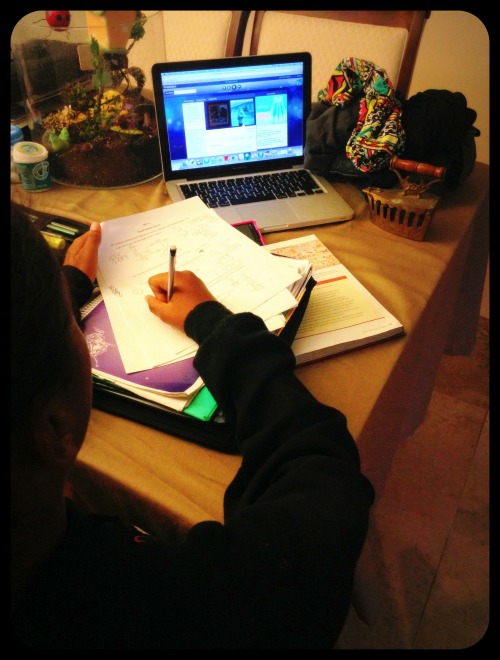
“But mom, why can’t I do my homework in front of the TV??? I’m not watching it, I’m just listening to it!!”, says my 12-year-old girl, emphasizing the word ‘watching’ with a half roll of the eyes.
My daughter is a really cool human & a great child. She is a tween so craziness and challenges come with the territory. Still, she has sweet moments, and she “OKs” everything, whether she remembers later or not.
But, my life was very different growing up in Italy and then Tanzania…
By age 9 my older brother & I alternated daily chores. We had to do dishes & sweep daily. There was no dillydallying, no talk-back, no having to dry our hands to like a song on Pandora…. none of that. We did homework on the kitchen table, our beds, in the yard, and wherever else. After I was done with homework I’d have to use the house phone, speak to a parent with good phone manners, & find out if my friends could come play. There was no texting them.
Everyone knew our plans; at least initially (smile). Outside we used our imagination to play with nothing. We picnicked under a tree in this huge sunflower field. We rode our bikes in circles in the bus’ parking lot and made sure we were home when the lights came on.
When I was 11 we moved back to Tanzania. Life here was drastically different, yet, in some respects there was more access to things than we had in the small Italian town we lived in. However, constant electricity and running water were gone. We had a western toilet in our home, but often had to use toilets requiring squatting, be they a hole over a sceptic tank, or an Eastern latrine. Not having water & electricity all the time required planning.
Though there was hired help, we also had to fetch water. If you don’t like fetching water you learn to use it sparingly. You take a shower from a bucket that’s a quarter full and come out clean! You recycle water so that first you wash your hair by dipping it into the bucket, then use the same water as the first cycle of your laundry, which you wash by hand. Having city-wide rationed electricity, meant ensuring you have kerosene, wick for lamps, and match sticks. You actually needed plenty of match sticks in Tanzania, because there is this one brand that makes them and you’re lucky if one out of five matches actually lights up & stays lit. HAHA!
We must see these things as humorous. Lack of electricity and paying for it in advance, meant using it responsibly. The radio would be on, and so would the TV for some parts of the day. We knew to close the fridge fast and to unplug the iron as soon as the job was done. Ironing was not always done with an electrical iron, either. Some times we would use a charcoal iron. It sounds like it’s from an entire different era, right? It’s still being used. A charcoal cast iron had to be used carefully. You’d also plan how to get hot coals so instead of wasting charcoal, kerosene fuel, and good match sticks, you’d use the charcoal for cooking. That required planning as well. A lot of planning and patience for a youngster, and children had to consider all these things from toddlerhood!
I am so infinitely grateful we lived this kind of life in my teenage years. Though I am sure I threw crazy hormonal arrows (figuratively speaking) at my mom, I think that having to deal with these realities made me get myself together quickly, thus sparing her six years of teenage craze. As far as school goes…wow! We had mandatory knee-high socks & buffed black shoes, mandatory hair pleats that I never had, monitors & prefects who thrived on their power to make us kneel for ‘misbehavior’, and hit-happy, switch-carrying teachers in the hallways who would whack you for no good reason.
In elementary school we had to chant….slowly & loudly…..”GOOD MORNING TEACHER!” Then we’d answer & ask, “FINE THANK YOU TEACHER, AND HOW ARE YOU, TEACHER?”, then we’d be permitted to sit down. In boarding school we had exactly 30 minutes to eat. The first year we ate food we individually cooked the night before, hoping it was still good without refrigeration. As a senior, food was made for us, so we’d hope it was ready & that we didn’t have to scoop bugs out of our beans. We’d always wash our dishes before returning to class. All of this, in 30 minutes.
At this school there was no corporal punishment. However, if we were late or didn’t follow other rules, we’d have some agricultural work for at least one period.
We studied in the hall after we cleaned our dinner mess. After two hours of supervised solid studying, we’d return to our hostel rooms (mine had four bunk beds with three beds each), and lights were out by 10pm. Everyone took showers in the morning, which I found to be unnecessary as the water was very cold, so I would leave some water in the courtyard for the sun to heat , and take a shower after school.
When I came to the United States I didn’t think I had a different work ethic than anyone else. I thought we all work hard & have different struggles. As the years passed I began to see certain differences & felt extremely fortunate for my history as it was.
As a girl I was lucky that my mother (who is partially Afghani & Punjabi) didn’t believe that I was worthless, blessed that she believed in education and sent me to school. I was also fortunate that I wasn’t betrothed at a young age, or at all. As I was in college I understood that I was privileged and had to make other women proud.
I would have to get the best grades, be a well-rounded student & not take electricity and running water for granted. So when my daughter asks why she can’t do her homework in front of TV, I don’t know what to say! OK, I do answer her, trying to use logic she’ll understand. She visited Tanzania for a few months in 2010, but she cannot relate to my history.
When my daughter was round age four she always asked if she could help with chores, but as I tried to rush I’d ask her to draw or play instead. I thought the environment around us would do for her what it did for me at her age. I knew I wasn’t in Italy, or in Tanzania, but I still thought I wouldn’t be the only one pushing for a balanced human. I also didn’t anticipate technology advancing so incredibly fast & how much gadgetry she would have at her disposal. In retrospect I should have encouraged her willingness to help.
She is now 12, doesn’t like to do any chores other than the occasional Swiffer mopping. She wants to do homework while listening to TV, somehow ignoring the visuals, and she wants to spend her other homework time listening to pop songs. She does practice Brazilian Jiu Jitsu and has a unique passion for it. But when not doing her school work, she looks at photos with funny quotes, watches short videos, and messages her friends on her phone. Our lives are so different. How do I teach her what I’ve been taught?
Is it drive? Is it thirst? Can you relate? How do you teach your children how to work hard? Please share your findings with me!
This is an original post to World Moms Blog by Sophia in Florida, USA. You can find her blogging at Think Say Be and on twitter @ThinkSayBeSNJ.
Photo credit to Trocaire. This photo has a creative commons attribution license.
I am a mom amongst some other titles life has fortunately given me. I love photography & the reward of someone being really happy about a photo I took of her/him. I work, I study, I try to pay attention to life. I like writing. I don't understand many things...especially why humans treat each other & other living & inanimate things so vilely sometimes. I like to be an idealist, but when most fails, I do my best to not be a pessimist: Life itself is entirely too beautiful, amazing & inspiring to forget that it is!
More Posts
Follow Me:


by Nicole Melancon (USA) | Jun 3, 2014 | Africa, Babies, Ethiopia, Social Good, World Voice
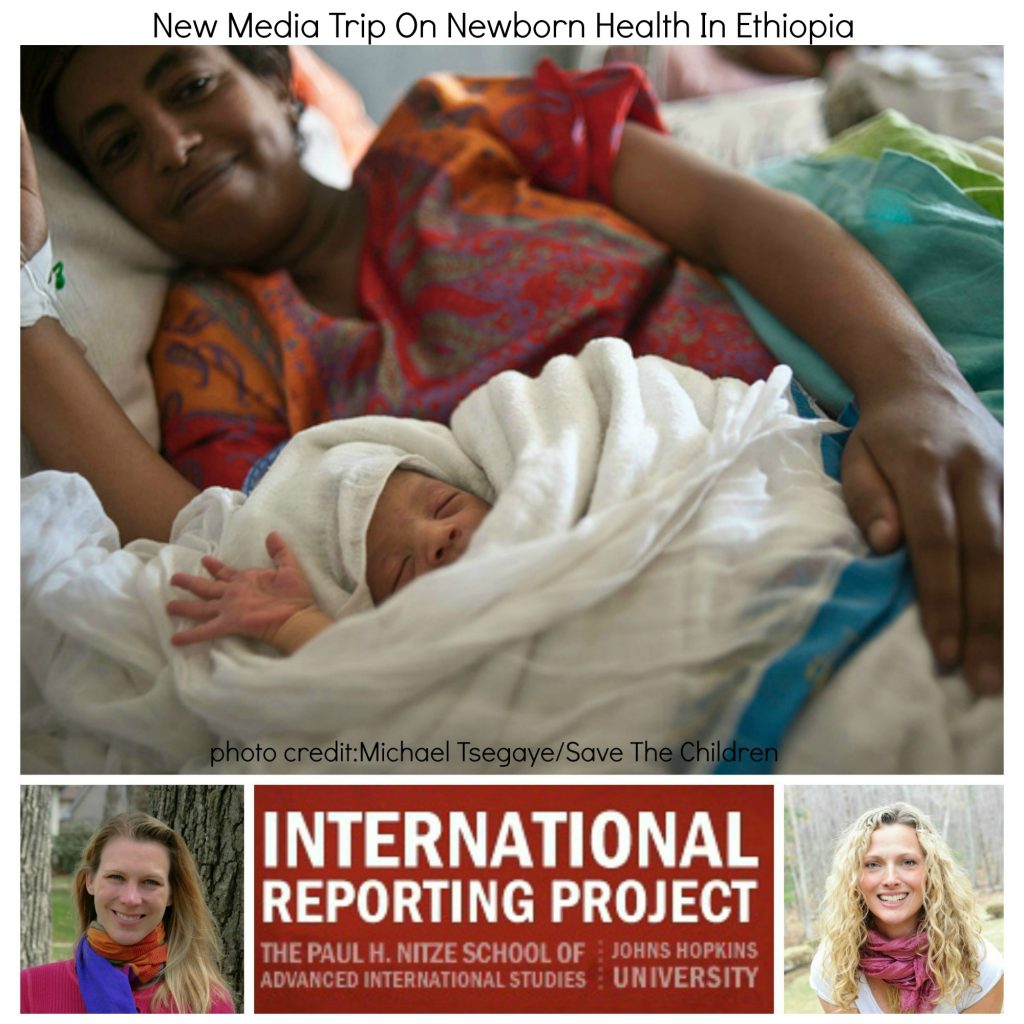
We have exciting news at World Moms Blog! Two World Moms Blog Editors, myself and Elizabeth Atalay, have been selected to travel to Ethiopia this June as New Media journalism fellows with The International Reporting Project (IRP). Last April, World Moms Blog Senior Editor Purnima Ramakrishnan of India was a fellow on the IRP’s Brazil trip where she reported on the reduction of poverty and hunger in Brazil, and how it has embraced the Millennium Development Goals to improve the lives of its citizens.
The International Reporting Project (IRP) is based at The Paul H. Nitze School of Advanced International Studies (SAIS) of the John Hopkins University and the primary goal of the IRP is to provide journalists with the opportunity to report internationally on issues not traditionally covered in mainstream media.
The program was created in 1998, making it a pioneer in the “nonprofit journalism” movement that seeks to fill the gap left by much of the mainstream media’s reduction of international news. The IRP has provided opportunities to more than 400 journalists to report from more than 100 countries and produce award-winning stories.
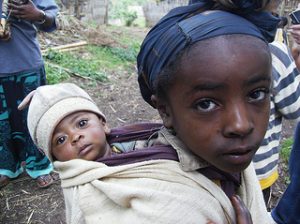
Photo credit: IRP
Elizabeth and I will be two of nine new media journalist fellows heading for a two-week trip to Ethiopia to report on Ethiopia’s efforts to prevent newborn deaths as well as provide an overview of maternal and child health, immunizations, nutrition, communicable diseases, and health care provision, among other topics.
One of the areas that I am most excited to learn about is how Ethiopia, one of the poorest countries in Africa, has stunned the world community by achieving Millennium Development Goal number #4 reducing the mortality rates of children under age 5 by two-thirds well ahead of the 2015 deadline.
In a country in which 95% of the population lives outside of an urban center in rural, remote and hard to reach areas and a shocking 90% of women birth at home without a midwife, Frontline Health Care Workers (FHCW) have been the key ingredient to Ethiopia’s success. I am really excited to meet some of these workers and mothers and share their stories. I am sure it will be a life-changing experience.
While in Ethiopia, I will examine Ethiopia’s political, historical, socio-economic and cultural dynamics to report on this misunderstood country, setting the stage to shed light on the massive effort introduced by the Ethiopian government to achieve MDG4 and what the impact has been on other critical areas such as newborn and maternal health, poverty, and other Millennium Development Goals.
Elizabeth is looking forward to seeing first hand and reporting on maternal and newborn health issues, and solutions in Ethiopia that she has previously only written about. There is great optimism coming out of Ethiopia these days and with the success of decreased maternal and child mortality, the next frontier to conquer is survival of newborns. More than half of the child deaths that do still occur take place in that first year of life, the first 24 hours being most critical. Newborn survival is closely tied to maternal health so issues around safe birth and postpartum care, and addressing uncomfortable issues such as fistula are topics she also hopes to report on.
As one of the most diverse populations in the world with over 83 distinct languages and 200 dialects, Ethiopia shares a unique history, society, culture, environment, economy and governance that is unlike her neighbors. We are honored to have been selected as new media reporting fellows for this trip to Ethiopia, and look forward to sharing our newfound knowledge with you during our upcoming trip.
We would love for you to follow along our journey at #EthiopiaNewborns !
This is an original post written for World Moms Blog by Nicole Melancon of Third Eye Mom.

Third Eye Mom is a stay-at-home mom living in Minneapolis, Minnesota with her two children Max (6) and Sophia (4). Her children keep her continually busy and she is constantly amazed by the imagination, energy and joy of life that they possess! A world wanderer at heart, she has also been fortunate to have visited over 30 countries by either traveling, working, studying or volunteering and she continues to keep on the traveling path.
A graduate of French and International Relations from the University of Wisconsin Madison, where she met her husband Paul, she has always been a Midwest gal living in Minnesota, Wisconsin and Chicago. This adventurous mom loves to be outside doing anything athletic (hiking, running, biking, skiing, snowshoeing or simply enjoying nature), to travel and volunteer abroad, to write, and to spend time with her beloved family and friends.
Her latest venture involves her dream to raise enough money on her own to build and open a brand-new school in rural Nepal, and to teach her children to live compassionately, open-minded lives that understand different cultures and the importance of giving back to those in need. Third Eye Mom believes strongly in the value of making a difference in the world, no matter how small it may be. If there is a will, there is a way, and that anything is possible (as long as you set your heart and mind to it!).
Visit her on her blog, Thirdeyemom, where she writes about her travels and experiences in other lands!
More Posts

by Nancy Sumari | May 28, 2014 | 2014, Africa, Awareness, Home, Humanitarian, Nancy Sumari, Social Equality, World Moms Blog, World Motherhood, World Voice
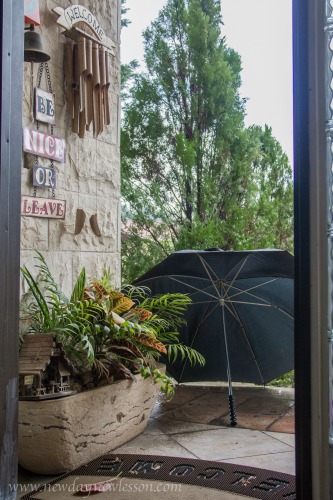
I was recently asked to be a part of the upcoming UNHCR World Refugee Day in my country. I was asked to put literally myself in the shoes of those individuals who have been forced out of their homes and countries, due primarily to conflicts. I was then invited to contribute my thoughts and feelings through a document that would be shared at a gathering on World Refugee Day.
As a mother, I feel that our primal instinct is to protect and nurture, but protection and nurturing that is coupled with nesting. To many of us, a nest may initially bring a picture of “a little bird and a couple of eggs” to mind but in my opinion, a nest brings to mind home. It means having a center, a base, headquarters, in short somewhere to come back to.
That got me thinking. What does this four-letter word, HOME, really mean? To some, not much, because for them it’s something easily taken for granted. To others, it’s a base. A place where you shower, change, nap and get back out there. But, for a lot of people, it’s a residence, it’s family, it’s dignity, it’s freedom. Most importantly, it’s where the heart is. I probably can’t even count the amount of times that I’ve walked in and out of my home, the amount of time I’ve spent time in my home just hiding away from the world in a safe and comforting haven. A lot of those times, I have not really sat and looked around to soak it in and really see what it all means, and certainly not for me, but for my family, until now.
The thought of the loss of this base, this center, a center that helps us be centered, truly breaks my heart. So here I am, thinking about the 5 million people in Tanzania who are currently refugees without ‘A Home’. My heart breaks to think about what that means for the 48% of refugees who are children. I am empathizing with them but also in awe of them all. In awe of their strength. In awe of their resilience.
I wish for a day when every person in this world will have a physical home to house the home each of us carries with us in our hearts.
What does home mean for you?
This is an original post by Nancy Sumari from Tanzania. You can find more of her writing at Mama Zuri.
Photo Credit to Susie Newday.

by Mannahattamamma (UAE) | May 21, 2014 | 2014, Awareness, Cultural Differences, Education, Expat Life, Feminism, Girls, Government, Human Rights, Nigeria, Politics, UAE, USA, Women's Rights
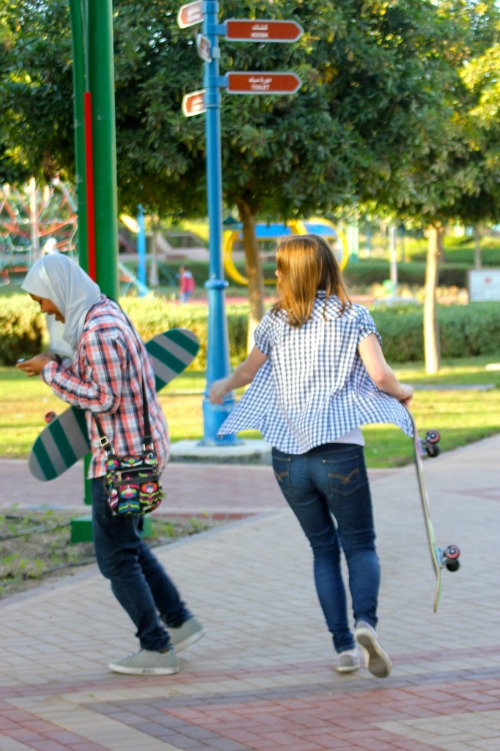
In March, I wrote a post in honor of Gloria Steinem’s birthday, in which I mentioned that when Steinem spoke at my college graduation way back in the 1980s, my friends and I had wished for a speaker who was more “relevant.” In our innocence, we believed that Steinem had won her fight; we were graduating from a women’s college and thought that fight for gender equality had been more or less won.
More than two decades later, I wish I could say that Steinem was irrelevant and that gender inequality is something we only read about in the history books.
When I wrote that post about Steinem, I was thinking about the Common Core curriculum, which relegates women’s contributions to history to the sidelines. Now, of course, we are all confronted with the horror that’s unfolding in Nigeria, and while the plight of those schoolgirls devastates me, it has become, in my mind, another instance in a long list of the ways in which groups (comprised mostly of men) attempt to score political points by seizing control of women’s lives. As an example, think about the Tea Party conservatives in the US, who prove their conservative bona fides in the United States by voting against support for Planned Parenthood, or Head Start, or universal kindergarten, or…
What is so scary about educating a girl? In the middle ages, accusations of witchcraft were often leveled against women who had amassed too much wealth or land, or who in some way differed from those around them. We teach our children that things like the Salem witch trials happened because “people didn’t know better” or because of “mass hysteria” but sometimes I wonder how far we have progressed since those days. What happens to women who challenge the status quo–or who have the potential to challenge the status quo? Don’t they still run the risk of being punished, whether literally or figuratively?
It’s funny to me now, but when I first moved to Abu Dhabi the two most obvious indications that we’d left Manhattan behind—besides the searing heat—were the adhan and the abaya-clad women: religion and covered bodies. I found the abayas more unsettling than the call to prayer, even as I sometimes envied the women their public invisibility. The longer we live here, however, my perceptions have changed so that I no longer see hijab as an automatic symbol of oppression or subjugation or second-class citizenry.
I would imagine, however, that as women here, we’ve all had moments where we’ve felt marginalized, silenced, lesser: the day I trotted down the sidewalk to get in a waiting cab and the cab driver chastised me by saying “women should not run, madam, I will wait, and you should walk.” Or when a guard at the border crossing into Oman looked over at the passenger seat where I was sitting (in long trousers) with one foot propped on the dashboard and told me “to put my foot down, sit like a lady, more properly, sit properly.” When that happened my first impulse was to laugh: surely he couldn’t be serious? But, of course, he was serious. I put both feet on the floor and looked at the map so that I didn’t toss out a few well-chosen swear words. (A general rule regardless of where you are: don’t swear at anyone, male or female, who is wearing a uniform at a border crossing.)
So yes, in that instance, I was silenced as I suppose I was by the cab driver too, who took it upon himself to offer some unsolicited advice. And yes, there is now a slight internal pause before I leave the house as I run through a kind of inner checklist about what I’m wearing: if short sleeves, a long skirt or pants, or vice versa (long sleeves, shorter skirt or shorts); do I have a shawl (equally for frigid air conditioning and bare shoulders); if I’m going to the beach, I make sure that my beach cover-up is more than a ratty t-shirt. There are days where I know I’ve failed the checklist and am too busy or late to care, but overall, I dress more modestly now than I used to and probably that’s not a bad idea: no one needs to see a fifty-year-old woman slopping down the street in cut-off shorts and a tank top.
Am I being repressed, or respectful? Does my feminism mean that I yell at the cabbie, keep my foot defiantly on the dashboard, saunter down the street in a halter top and tight jeans? Or, alternatively, does feminist politics remind us that silencing and the policing of women’s bodies happens—sadly—in almost every culture in the world, including the US? Without making light of the specifics of being female in this region, I’ve come to think of the issues facing women in this part of the world as being differences in degree, not kind, from the problems facing women in other parts of the world.
What do we, as women, do to help other women and girls find their voices–find our own? How do we create strength to silence those who would silence us?
This is an original post to World Moms Blog by Deborah Quinn in the United Arab Emirates of “Mannahattamamma.”
After twenty-plus years in Manhattan, Deborah Quinn and her family moved to Abu Dhabi (in the United Arab Emirates), where she spends a great deal of time driving her sons back and forth to soccer practice. She writes about travel, politics, feminism, education, and the absurdities of living in a place where temperatures regularly go above 110F.
Deborah can also be found on her blog, Mannahattamamma.
More Posts
Follow Me:




















